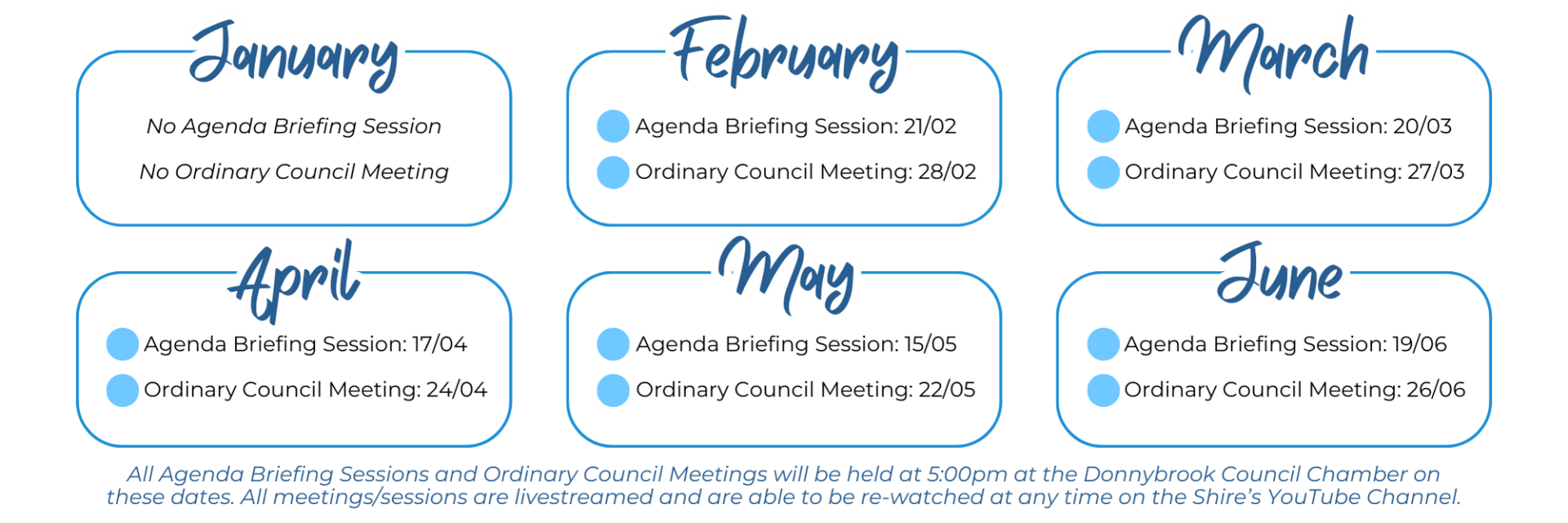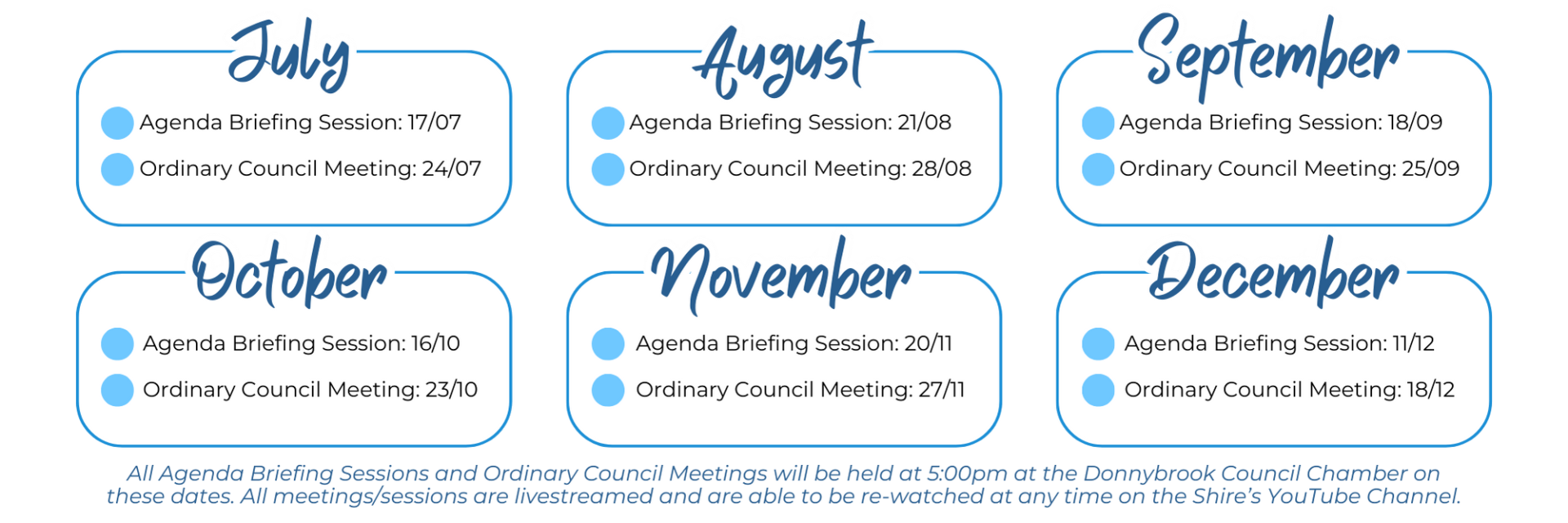How do Council Meetings work?
Visit our YouTube Channel! Follow us on Facebook! Follow us on Instagram!
Ordinary Council Meetings
Ordinary Council meetings are held every fourth Wednesday of each month, a week after Agenda Briefing Sessions (except December which is held on the third Wednesday). Meetings are held in the Council Chamber, except where otherwise indicated, and are open to the public to attend.
As of July 2022, we implemented a policy to livestream our Council Meetings at every opportunity, where technically possible, unless the Council has resolved to close the meeting to members of the public in accordance with Section 5.23 of the Local Government Act 1995. The primary purpose of these streams is to be open and transparent, giving the public greater access to Council decisions, debates and discussions by eliminating geographic and/or personal barriers that may prevent physical attendance at a Council Meeting.
Please be aware that some external locations that the Council visits do not have livestreaming or recording facilities. We invite the public to visit these locations with the Council, should you be interested in the meeting topics of discussion. Alternatively, we will have our documented Meeting Minutes published online for you to access. You can read the Live Streaming and Recording of Council Meetings Policy for more information.
View our Local Laws
Agenda Briefing Sessions
Agenda Briefing Sessions are typically held in the third week of every month at the Shire of Donnybrook Balingup Council Chambers. These sessions are open to the public to attend, however there is no opportunity for public participation.
Agenda Briefing Guidelines
Public Question Time
If you wish to ask a question, you can do so during Public Question Time at the start of the meeting. Each member of the public with a question is entitled to ask up to two questions at a time. If a question is unable to be answered at the meeting, it may be taken on notice by the Council for a later response.
To ensure we have a true record of all questions asked, please complete the online or printable form, using the links below. Sending your question prior to the meeting will ensure an accurate and concise response. You can also bring your question with you to the meeting, although your question may be taken on notice and answered at the next meeting.
Ask via our printable/fillable form Ask via our website form
Please ensure that all details have been provided when filling out the form so that answers to questions can be sent to the correct person.
Deputations & Petitions
A person or group that wishes to make a deputation to Council is to apply to the Chief Executive Officer in writing prior to the meeting for approval, or request the Presiding Member’s approval at the meeting. Deputations are not to exceed five persons, only two of whom may address the Council, although others may respond to specific questions from Members. The deputation is not to exceed 10 minutes without the agreement of the Council.
A petition is a request for action. Any elector or group of electors may petition the council to take action. However, the subject of a petition must be a matter on which the Council has the power to act. An elector is a person who owns or occupies rateable property within the Shire of Donnybrook Balingup, and is eligible to vote in local and state elections.
All petitions must:
- Be addressed to the Council
- Be respectful and temperate in its language
- Set out a concise statement of facts and the action sought
- State the name, address and signature of all electors making the request, including date of signature
- Set out the name and address of the petition initiator.
When and where are the meetings held?


Download as a PDF
The above dates were approved by Council at the Ordinary Council Meeting held on 22 November 2023.